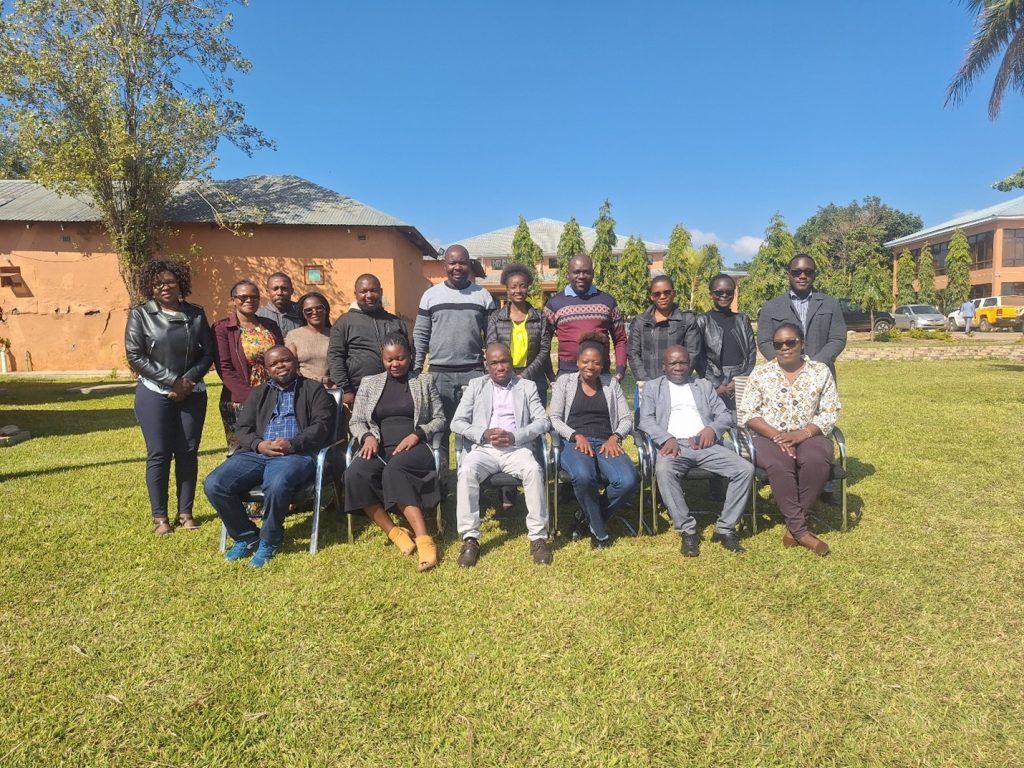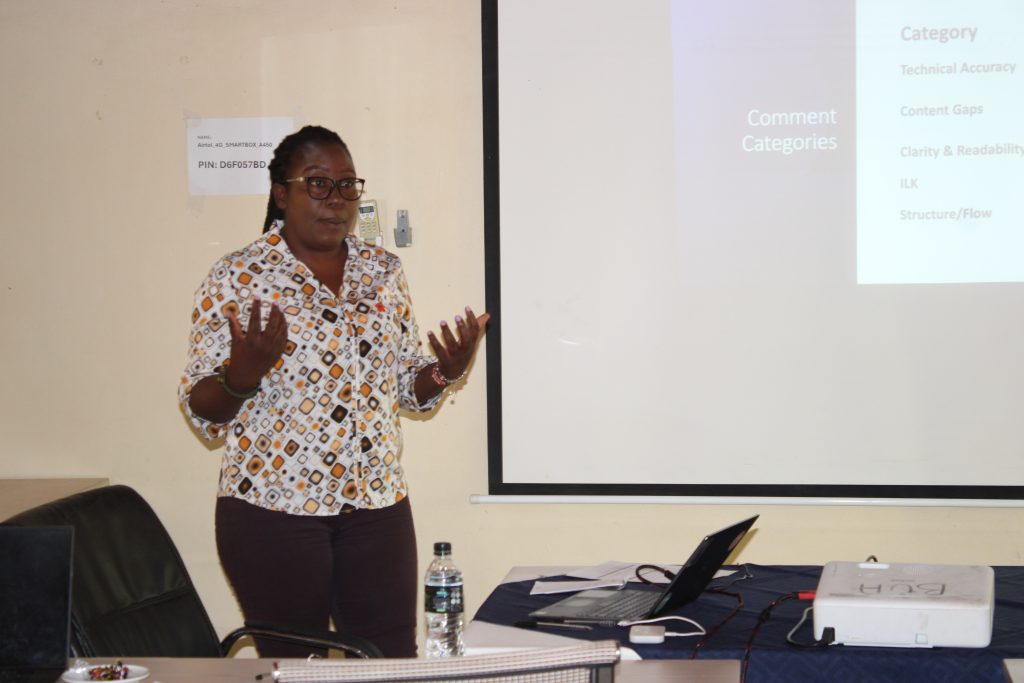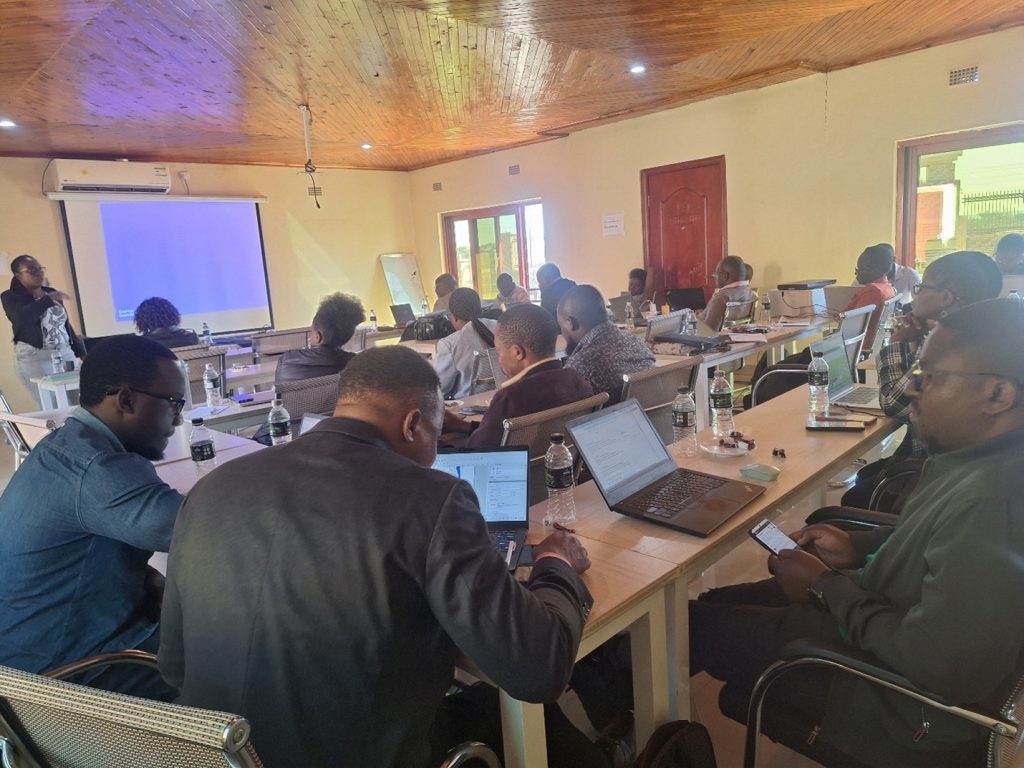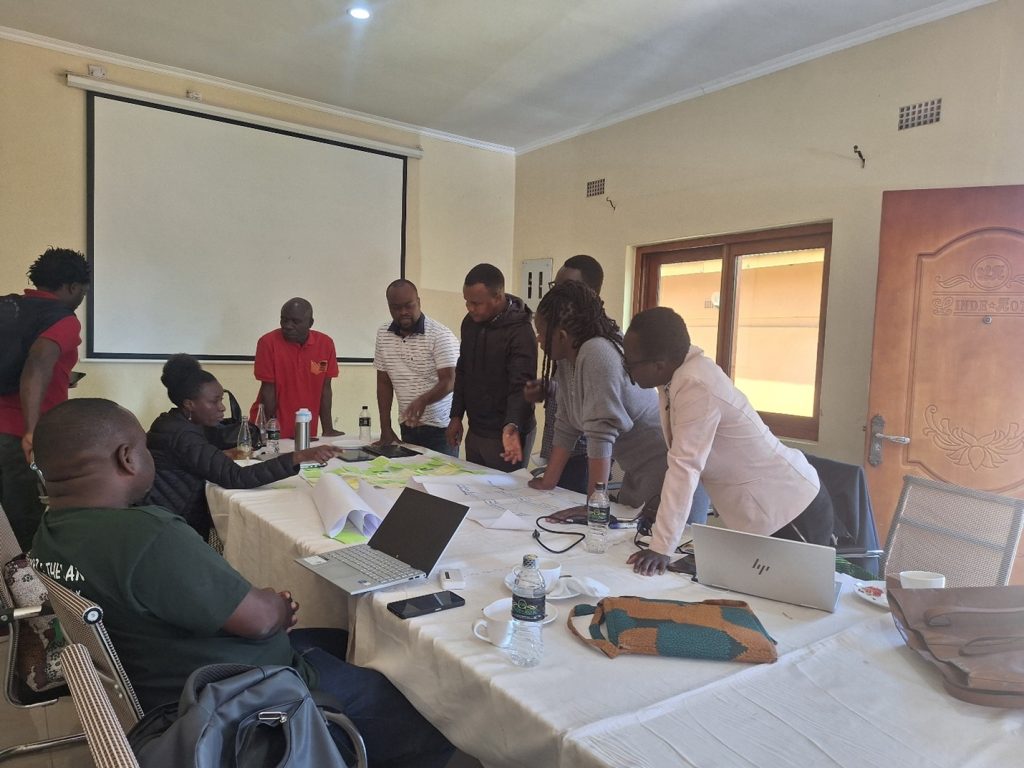Writeshop Creates Pathway to Integrate Reviewers’ Input in the Malawi National Ecosystem Assessment Report
- News
With inputs from Alice Kammwamba, Project Manager for the Malawi National Ecosystem Assessment

In a continued effort to integrate stakeholder inputs into the Malawi National Ecosystem Assessment, a Writeshop was held in Mponela, Dowa District, from 25 June to 27 June 2025. The event brought together authors of the national ecosystem assessment and external reviewers, as well as representatives from various government departments and the Lilongwe University of Agriculture and Natural Resources (LUANAR). Writeshops are inclusive approaches for obtaining and incorporating reviewers’ feedback into national ecosystem assessments. The aim is to strengthen evidence generation, promote coherence and coordination across chapters, and enhance the capacity of experts and authors. A total of 23 experts (10 women and 13 men) participated in this Writeshop on the First Order Draft of the Malawi National Ecosystem Assessment Technical Report.
Ms. Alice Kammwamba, Project Manager of the Malawi National Ecosystem Assessment, said, “As we move forward with finalizing the national ecosystem assessment report, workshops like this not only help to include the voice of stakeholders but also foster a sense of improved ownership and empowerment among authors and experts.”
She added, “Authors and experts currently involved in the assessment process took advantage of this Writeshop to reflect on the writing process, provide mutual support and peer review, and identify gaps and inadequacies in the draft report. This will enable them to build on the first-order draft, ultimately to produce a high-quality, rich and inclusive assessment report.”

Outcomes and Recommendations
The Writeshop received positive feedback from participants, who, through the collaborative process, wrote compelling and clear chapters for the Malawi National Ecosystem Assessment Technical Report.
Mphatso Kalemba, a participant, found the Writeshop particularly beneficial. “We were all in one room, which made it easy to collaboratively review and address every single comment from the reviewers. The discussions helped us agree on the best ways to improve our chapter,” she stated. Her favorite part of the Writeshop was the session on scenario building. “We managed to condense complex content from our chapter into a single page, which really helped us to visualize the work we had done on the wetlands chapter,” she added.
Mr. Moffat Manase, another participant and lead author for the aquatic ecosystems chapter, emphasized that the Writeshop provided a critical foundation for generating evidence-based insights for Malawi’s National Ecosystem Assessment. “It not only supported us as emerging authors and career experts in crafting scientifically sound chapters and concepts, but it also guided us in developing strong, convincing publications.”
He emphasized that the most valuable outcome was the creation of well-researched chapters enriched with practical case studies that illustrate how scientific knowledge can be meaningfully integrated with Indigenous and Local Knowledge (ILK). “Among the key lessons learned were the importance of being purpose-driven, the value of good timing and thematic relevance, and the necessity of considering long-term trends while addressing uncertainties in ecosystem assessments,” he further noted.
Participants identified opportunities for improvements in the following three areas:
- Effectively incorporating ILK alongside scientific evidence.
- Gathering more data will enhance support for some of the findings.
- Enhanced clarity in definitions.
The Writeshop was structured around four thematic technical working groups: Wetlands, Terrestrial, Aquatic and ILK.
The Aquatic Technical Working Group reported that the team had successfully reviewed all the comments received from reviewers and managed to address most of their feedback.
The Wetland Technical Working Group highlighted the need to better represent lesser known and smaller wetlands. Additionally, the group noted the overlap between aquatic and wetland chapters, particularly in terms of the scope and definitions. It was recommended that aquatic and wetland teams should work together to harmonize and clarify their respective definitions.
The ILK Technical Working Group recommended the inclusion of gender and of human rights-based approach considerations in the assessment report. The team recommended using Target 21 or 22 of the Kunming-Montreal Global Biodiversity Framework as a guiding reference for incorporating gender dimensions.


ILK TWG during scenario building and addressing reviewers’ comments. Photo taken by Rose Stenala
Building Biodiversity Scenarios for Decision-Making
National ecosystem assessments support decision-makers in the government, private sector and civil society with more robust, relevant and legitimate knowledge regarding plausible future scenarios for biodiversity and ecosystem services. They help understand how drivers impacting biodiversity and ecosystem services might evolve in the future, and what the consequences might be for biodiversity, ecosystem services and nature’s contributions to people. They also seek to understand the implications of different policy choices on biodiversity and ecosystem services.

Dr. Gibson Mphepo, Mr. Leonard Masala and Mr. Latwif Malemia, experts in scenario building, guided participants on the effective use of scenarios within the context of the Malawi National Ecosystem Assessment. They provided insights into constructing scenarios using the DPSIR Framework (Driver-Pressure-State-Impact-Response Framework). After these presentations, experts and authors reconvened in their technical working groups to develop scenarios based on their specific thematic ecosystems.
The Malawi National Ecosystem is expected to be validated by the government and subsequently launched in the first quarter of 2026. The assessment is being technically supported by the National Ecosystem Assessment (NEA) Initiative at UNEP-WCMC, as part of the Biodiversity and Ecosystem Services Network (BES-Net), working in partnership with UNDP and UNESCO. Financial support for the NEA Initiative is provided by the International Climate Initiative of the German Federal Ministry for the Environment, Climate Action, Nature Conservation and Nuclear Safety, the Norwegian Environmental Agency, the Japan Biodiversity Fund and SwedBio.
